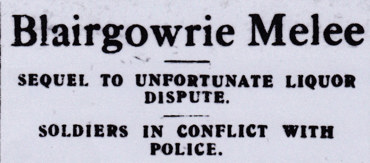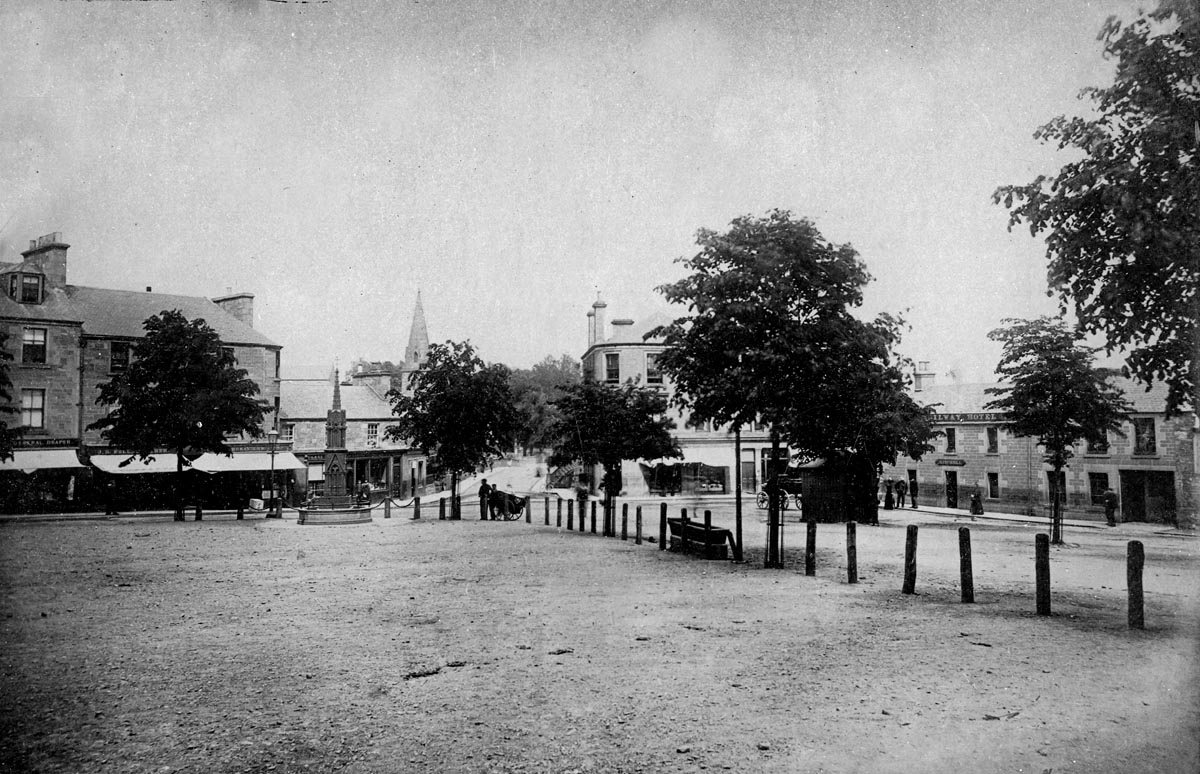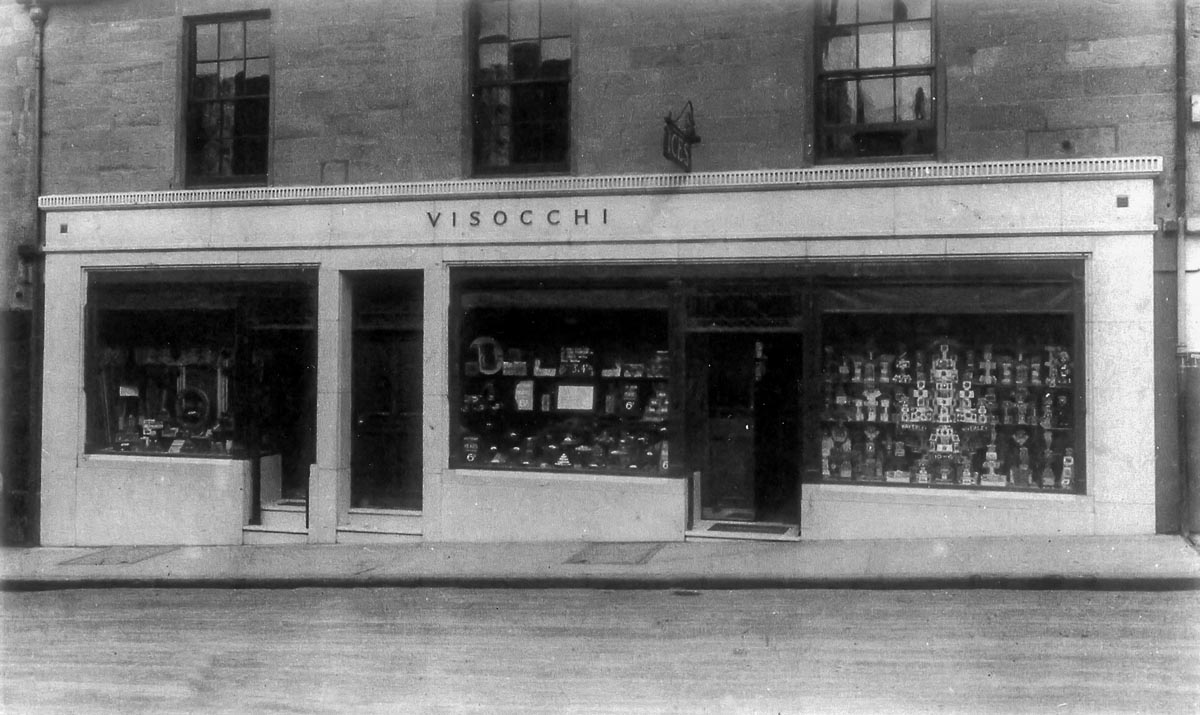Our Heritage Timeline
THE BLAIRGOWRIE RIOT

THE BLAIRGOWRIE RIOT
WAS THE RIOT ACT READ IN THE WELLMEADOW IN 1918?
MUCH MORE THAN A BRUSH WITH THE LAW
Let us set the scene. The world had been at war since 1914. For over four years the townspeople of Blairgowrie and Rattray had endured the devastation, loss of life and severe hardship as a result of the conflict. Emotions were raw and life was hard, but in December 1918 there may have been a glimmer of hope of recovery and a more peaceful life.
During the war Blairgowrie was the Headquarters of the Northern Command of the Labour Corps and thousands of men of all ranks were billeted at the Haugh.
'The war to end all wars' was now over and peace was declared. Fighting on land, sea and air came to an end. The Armistice came into force at 11am on 11 November 1918.
Yet a fight, involving hundreds of soldiers and the police broke out on Saturday 7 December 1918 turning the centre of Blairgowrie into something resembling a battlefield.
Newspaper headlines like 'Riotous Scene at Blairgowrie' (Dundee Evening Telegraph) and 'Blairgowrie Melee - Soldiers in Conflict with Police' (Perthshire Advertiser) reported this notorious incident.
It had all started in the Railway Hotel, which was the original name of the Angus Hotel. A group of soldiers had ordered whisky at the bar. The hotel keeper told the men that there was no whisky, only bottled beer, which, despite considering the price to be too high, they purchased.

Subsequently, it was alleged that civilians were being served whisky. A serious assault on the hotel keeper followed, rendering him unconscious. The police and a doctor were summoned. The offender was arrested, but, on the way to the Police Office, a group of soldiers set upon the police and succeeded in releasing the offender.
The soldiers then visited Visocchi's Ice Cream Parlour (now The Dome) in Leslie Street. The police followed them there intending to re-arrest the offender. A fight broke out in the ice cream shop and this resulted in a Police Sergeant being assaulted. Arrests followed and the offenders were taken into custody.

A mob of two to three hundred soldiers then gathered round the Police Office.
Threats of violence towards the police were made and some windows at the Police Office were smashed. Threats to storm the building were made unless the men were freed.
Unable to control the mob, the police requested that the Military attend. The Military failed to control the disturbance. By this time the incident had been going on for several hours.
Eventually, at the request of the Military, and in order to quell the disturbance, the Police Inspector released the men from the cells. When the soldiers appeared at Perth Sheriff Court on charges of assault, mobbing and breach of the peace, the main offender was sentenced to three months in prison and each of the other four to sixty days' imprisonment.
This shocking incident is now part of Blairgowrie's history, but the question remains: Was the Riot Act read?
Some local people believe it was.
The Riot Act 1714 had a lengthy title: "An Act for preventing tumults and riotous assemblies, and for the more speedy and effectual punishing the rioters'.
It authorised local officials to declare any group of 12 or more people to be unlawfully assembled and to disperse or face punitive action. If a group failed to disperse within one hour of the Riot Act being read, the authorities could use force to disperse them.
Newspaper reports of the incident have been studied, police records have been scrutinised and authorities consulted and no record of the Riot Act having been read in Blairgowrie on 7 December 1918 has been found. We have it on authority that for the Riot Act to have been read, a Magistrate would be required to be present. In none of the reports researched was there mention of a Magistrate having attended. We conclude that the Riot Act was not read, but are you able to prove otherwise?
For their assistance with research into this incident, grateful thanks are due to -
Willie MacFarlane, retired Police Officer.
Craig Dennis, Senior Library Assistant, Blairgowrie Library.
Lorna Westwater and Stewart Coupar, Senior Archive and Library Assistants, A.K. Bell Library, Perth.
For more about the Riot Act 1714 visit
https://en.wikipedia.org/wiki/Riot_Act
Previous Page
